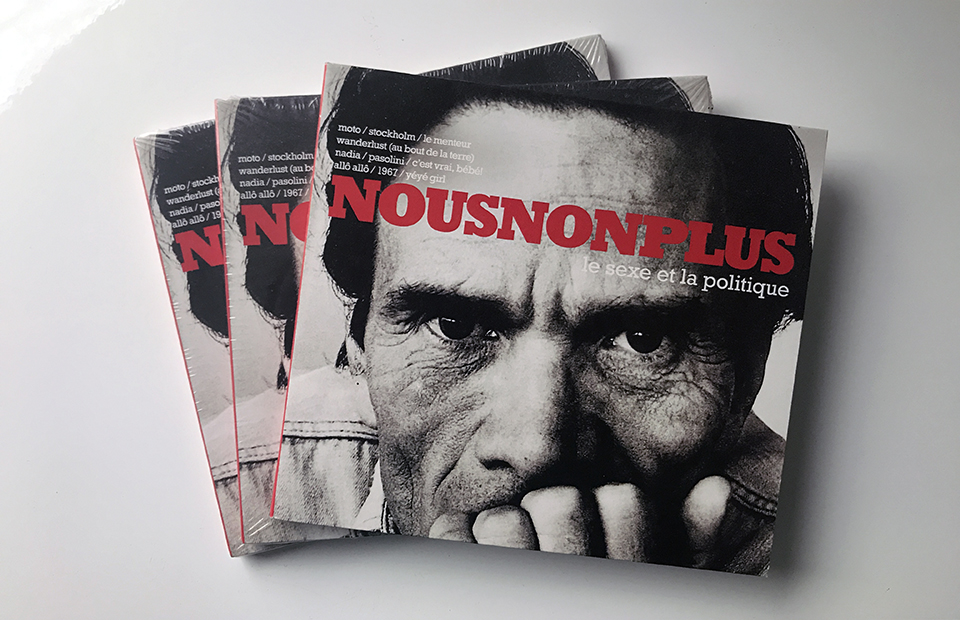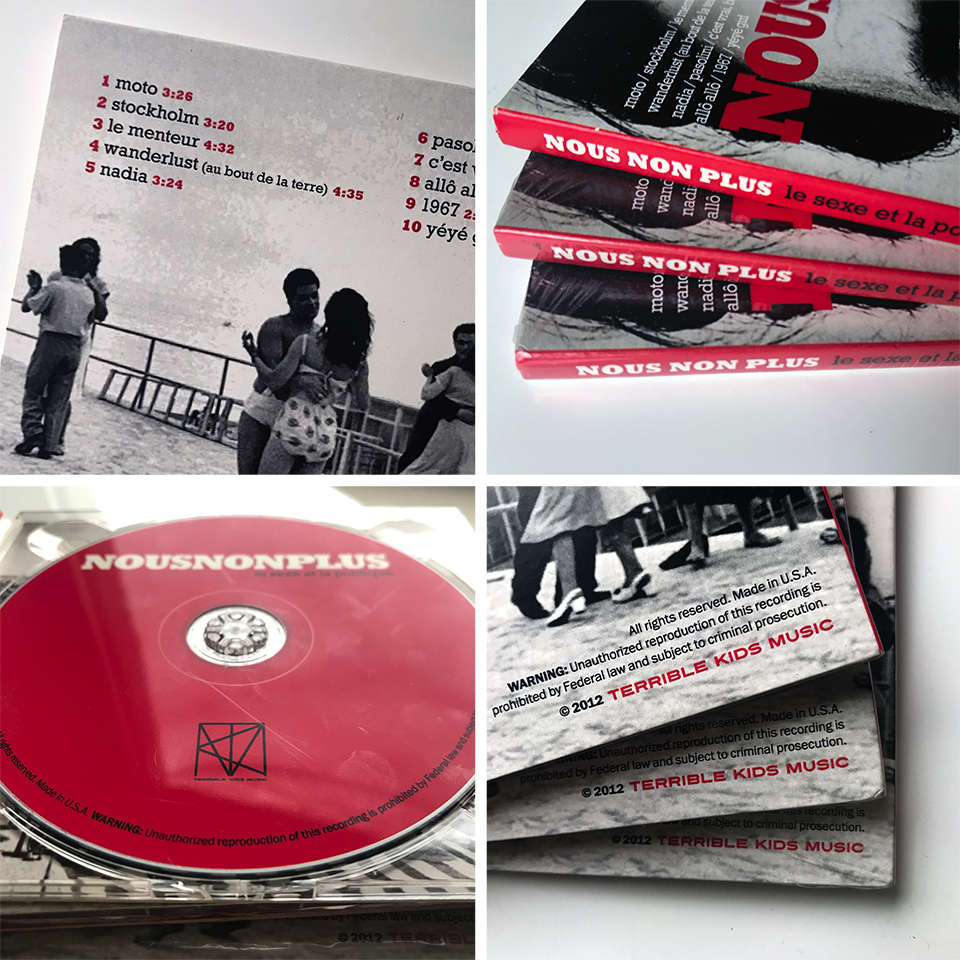
When he’s not “keeping the world safe for Italian wine,” Jeremy Parzen is a Telecaster-wielding member of faux-French indie rockers Nous Non Plus, for whom he goes by the puntastic nom de plume, Cal d’Hommage. Back in May Jeremy asked me to design the album artwork for the band’s new album, Le sexe et la politique. My path first crossed Jeremy’s in 2008 when I took over his wine marketing job here in New York after he’d returned to California. But we share more in common than just a mutual former employer. Already a fan of the band and its unique sensibilities, as a like-minded raging italophile and fellow Beatlemaniac I felt a personal responsibility to uphold my end of the deal.
Jeremy soon began sending me various rough mixes of tracks as they developed in his home studio in Austin, Texas, where he is now based. Having been afforded a peak inside the band’s inner sanctum, and aware of the personal significance of much of the material, I took my design lead from the poet-author-critic-filmmaker Pier Paolo Pasolini (1922-75). Arguably twentieth century Italy’s most controversial celebrity, Pasolini’s notoriety is highlighted by a quote on the inside sleeve, while his eclectic career and life is celebrated in the track “Pasolini”.
Using an intense portrait by photographer Dino Pedriali on the front cover, I selected vintage mid-century postcard scenes of Ostia (the setting for Pasolini’s brutal seaside demise) for the back cover and inner sleeve. The predominance of red represents both the political leanings of the man as well as the at times shockingly honest and direct nature of his personality and work.

Released on the band’s own label, Terrible Kids Music (for which I also designed the logo), the record is a winning and infectious blend of avant-garde electronica and ’60s pop flourishes. Le sexe et la politique is available to buy now on iTunes, CD Baby and Amazon.
“Io penso che scandalizzare sia un diritto, essere scandalizzati un piacere,
e chi rifiuta il piacere di essere scandalizzato è un moralista.”
— Pier Paolo Pasolini, 1975